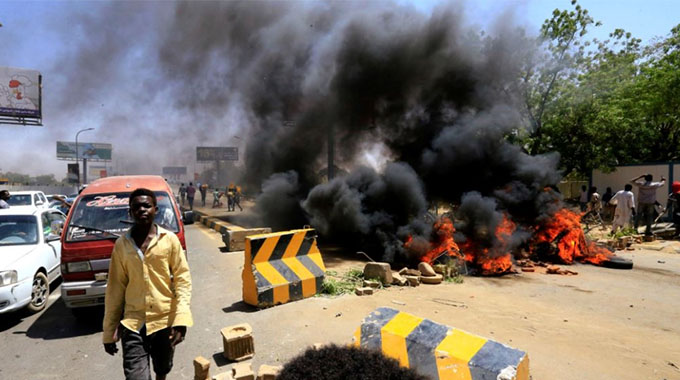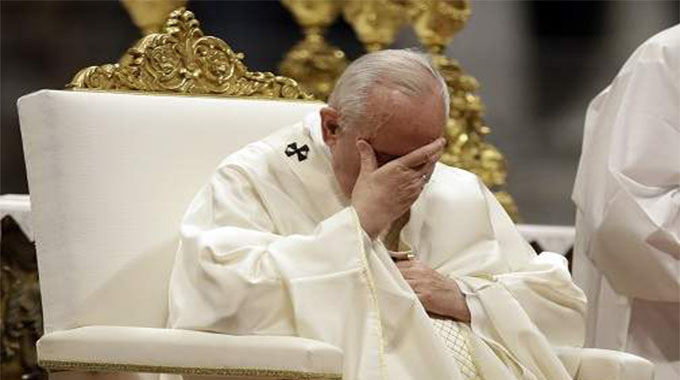Violence flares after deal on Sudan power structure

At least five demonstrators and one army major have been killed in Sudan’s capital, Khartoum, hours after protest leaders and the ruling generals reached a deal on transitional authorities to run the country following the overthrow of President Omar al-Bashir last month.
The flare-up of violence on Monday came as the prosecutor general’s office said al-Bashir had been charged over the killings of protesters during the mass protests that led to the end of his 30-year rule on April 11.
The major and protesters were killed at a sit-in outside the army headquarters in Khartoum where thousands of protesters remain camped for weeks, demanding that the army generals who took power after toppling al-Bashir step down.
Three soldiers and several protesters and civilians were also wounded when “unidentified elements” fired shots at the Khartoum sit-in, the ruling military council said.
A doctors’ committee linked to the protest movement later said four more protesters had been shot dead, but did not specify if they were killed at the sit-in.
In an overnight press briefing, the transitional military council said it would never fire on peaceful protesters, but added that rogue elements had made their way into the groups of protesters to cause trouble.
“There are people who are infiltrating these groups; they are armed and they targeted some of our military personnel,” Huthaifah Abdul Malik, head of military intelligence, said.
“We are aware of these people, their elements and plans of provocation. We know the means that they use. They have targeted the military with armed ammunition, but these outlaws were using barricaded areas to target some of our soldiers,” he added.
“We reaffirm that we are monitoring all those outlaws and we know who are infiltrating and are provoking the military and all their components.”
But protesters said they were sure the crowds outside the army headquarters were not armed, saying everyone coming in out of the sit-in area was being searched at the several barricades set up by them on the roads leading to the site.
“We also spoke to some of the people who have been receiving treatment at the medical clinics set up in the square and they said they were sure they had seen men wearing the uniforms of the [paramilitary] Rapid Support Forces (RSF) attacking them,” Al Jazeera’s Hiba Morgan, reporting from Khartoum, said.
“So the military, as much as it is denying the fact that their forces and the RSF have anything to do with the attacks and the deaths on the protesters, as well as the death of one of their members, they are going to have a hard time to earn the confidence and the trust of the protesters after what happened today.”
Earlier, the umbrella protest movement, the Freedom and Change alliance, said the violence was to “disturb the breakthrough in the negotiations”, blaming the bloodshed on the former rulers.
On Monday morning, police and the RSF dismantled barricades and dispersed about 100 protesters who had blocked a road leading from Khartoum North to al-Mek Nimir Bridge and the centre of the capital.
For a second day, demonstrators blocked Nile Street, a major avenue running south of the Blue Nile, placing burning branches and stones across the road, as well as several other streets north and south of the river.
-Al Jazeera










Comments